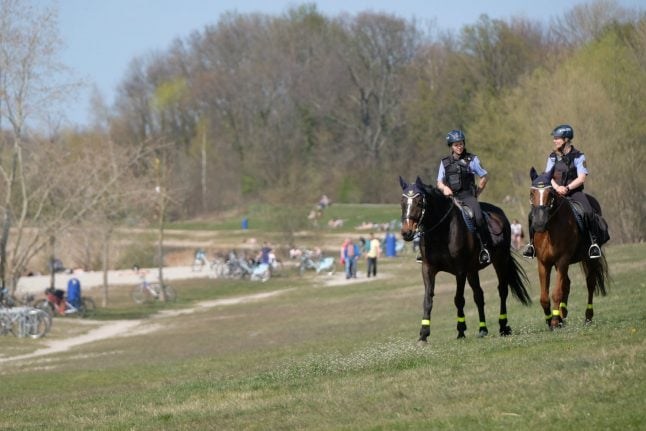The current rules – which include keeping a distance of 1.5 metres from others and ban on gatherings of more than two people in public, as well as widespread closures of schools and non-essential businesses – are officially in place up to and including April 19th.
But a new poll conducted on behalf of DPA by the opinion research institute YouGov, has found that many Germans are wary of lifting the restrictions too soon.
According to the survey, 44 percent of respondents said they wanted to see an extension of lockdown measures beyond April 19th, while 12 percent said they were even in favour of tightening the rules.
Only 32 percent are in favour of a relaxation of the lockdown measures, and eight percent said they wanted to see the restrictions abolished. Five percent did not give their opinion.
Meanwhile, 78 per cent of respondents said they were complying with the current restrictions in full. A total of 18 per cent said they were only partially following the rules, and 2 per cent said they were not sticking to rules at all.
READ ALSO: Germany bans gatherings of more than two to control coronavirus spread
On Wednesday April 15th, Chancellor Angela Merkel of the centre-right Christian Democrats (CDU) is set to discuss with Germany's state premiers how to proceed after the Easter holidays end next Sunday.
As of Monday morning April 13th, there were more than 127,800 confirmed coronavirus cases in Germany, according to Johns Hopkins University figures.
Of the total, around 60,260 people have reported themselves to have fully recovered from the virus while more than 3,000 people have died.
Experts say the curve is beginning to flatten in Germany as the number of new infections slows down.
READ ALSO: Germany could see 'gradual return to normality' after Easter holidays
The debate over when and how to lift the measures is growing in Germany, particularly after neighbouring Austria announced plans last week to relax its curbs.
Meanwhile, CDU leader Annegret Kramp-Karrenbauer said on Monday that states and the federal government must take a coordinated approach in order to have a smooth gradual exit from the coronavirus restrictions.
“It is important that we have regulations that are as uniform as possible,” she said.
North Rhine-Westphalia's state premier Armin Laschet (CDU) said on Sunday said a “timetable' was needed to allow the country to safely plan a route out of the partial lockdown.
Last week an internal government paper showed what Germany's path out of the current shutdown could look like. It included talk of infection contact tracing, compulsory mask wearing and continued social distancing measures.
Health Minister Jens Spahn said: “In the near future, the main task will be to quickly identify and isolate those infected by means of broad testing. And then to track down and isolate their contacts.
“This is the only way we can break chains of infection.”
On Thursday Merkel urged people to be patient. “We must not allow ourselves to be lulled into a false sense of security,” the Chancellor warned at a press conference leading up to Germany’s four-day Easter weekend.
She said restrictions would only be lifted “slowly”, she said, with their effectiveness reviewed on a “two to three week basis”.



 Please whitelist us to continue reading.
Please whitelist us to continue reading.
Member comments